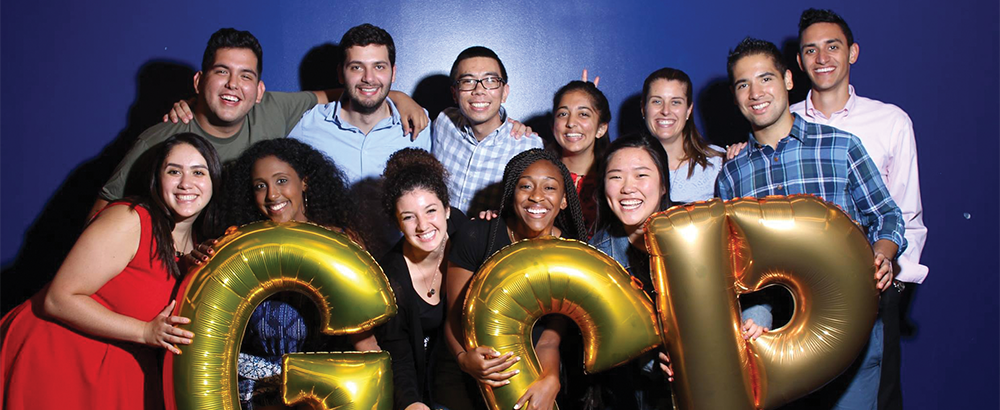
Eleanor Tolf is a Hoya Staff Writer.
Every year, hardworking, high-achieving students arrive on Georgetown’s campus anxious about the costs of higher education. Around 10 percent of Georgetown’s entering class are low-income students — with average earnings between $18,871 and $47,177 for a family of three. Over 70 percent of low-income students are also the first in their family to attend college, which can often make transitioning to college life a challenging journey because of economic constraints.
Since its founding in 2004, the Georgetown Scholarship Program has served over 1,400 of these students, ensuring them access to resources and networks of support to help them succeed on the Hilltop. Through various resources — such as access to an alumni network, career assistance, mentoring programs and peer advisers — GSP eases the academic and social transition of excellent students with vast potential coming from low-income backgrounds.
“Georgetown Scholarship Program empowered me and fellow students to understand our low-income and/or first-generation college student narrative in a positive light,” GSP Student Board President Emily Kaye (COL ’18) wrote in an e-mail to The Hoya.
GSP’s graduation rate is also one of the highest among private institutions, with 96.4 percent compared to the 30 percent national rate for first-generation students.
“Before GSP, I attributed many obstacles of my upbringing to myself as personal flaws,” said Kaye. “Since becoming a part of the GSP community, I have understood those obstacles to be part of a greater narrative of first-generation college students. That narrative contains obstacles, but it also shows the strengths that we have.”
The open, welcoming GSP staff made student and Co-Chair for Strategic Partnership and Advocacy Tithi Patel (SFS ’18) feel supported as part of a larger community.
“The fact that you have staff and student support with you at all times — during good days and bad days — it was really important to know I had someone on my side,” Patel said.
First-year students are paired with upperclassmen to discuss and compare the challenges of moving into an environment that at times fails to be inclusive to people from low-income backgrounds. Peer advisers are also available to help these students with resumes and provide interview tips. Then, sophomores in GSP can be paired with Georgetown alumni to help them navigate their transitions from the Hilltop to the labor market.
“GSP students don’t necessarily need help to accomplish their goals, they sometimes just need someone to tell them that they can and will accomplish their goals,” Kaye wrote. “In the context of professional guidance or academic work, parents of first-gen students often cannot provide the specific direction to pursue certain internships or classes.”
Through these mentorship programs, GSP students gain meaningful, valuable connections that not only ease their integration into the Georgetown community but also help them meet students from various backgrounds.
GSP has even devised a free pre-orientation program — the Preparing to Excel Program — that allows students to begin their transitions to the Hilltop before the school year starts.
“PEP is just 60 people together for a week who somehow end up meshing,” Patel said. “It really helps you get exposed to what Georgetown is. You get exposure to people all across different races and backgrounds.”
GSP knows far-reaching support to its students can be best achieved through teamwork. By supporting the Regents Science Scholars Program, GSP has expanded its reach to high-achieving students with an interest in science. RSSP seeks to remedy the university’s critical shortage of underserved and first-generation college students completing degrees in the sciences by offering first-year students a $500 fellowship.
“Because this is the first program of its kind nationally, everything is very student-centric,” Patel said. “Through that process, I think we’ve come up with something that’s really unique and also really helpful.”
Through programs such as GSP, PEP and RSSP, Georgetown offers a wide range of financial support and advising opportunities that prospective students take into consideration when picking colleges.
“GSP was the key reason I decided to come to Georgetown,” GSP member Emilio Joubert (COL ’19) said. “I was accepted to two other schools on full rides, but neither school seemed to offer programs similar to GSP or the Community Scholars Program. Georgetown’s deep appreciation for its first-generation students, in addition to its strong financial aid, is what made picking Georgetown such a natural decision for me.”
Through its Necessity Grant, GSP is also concerned with covering tutoring services, school supplies, textbooks and even medical expenses for its students. The goal of this grant is to provide financial assistance for anything these students might need during their time at Georgetown, including round-trip tickets for home visits during breaks and winter gear.
In addition to being academically successful, students in GSP are deeply involved in community service both on and off campus. Despite accounting for only 10 percent of the Georgetown student body, they make up 40 percent of recipients of the Lena Landegger Community Service Award, which recognizes Hoyas who have made substantial philanthropic contributions to their community.
Some GSP students, like Kaye, have discovered a passion for increasing access to higher education for first-generation and low-income students.
“The student-driven mission of GSP has empowered me to understand the potential for advocacy that comes within the obstacles that I have faced, but more importantly overcame,” Kaye wrote.
However, the total impact of GSP cannot be measured only by awards and graduation rates.
“To me, GSP is much more than its name suggests; it is a family of individuals who possess some manner of shared experiences and are able to communicate the wisdom they’ve learned from these experiences,” Joubert said.
GSP has become a community on the Hilltop and functions as a piece of home to many students involved, as it is filled with people who have similar backgrounds and values.
“In a word, GSP is family,” Patel said.